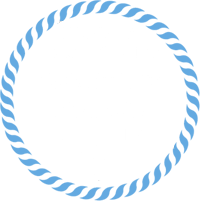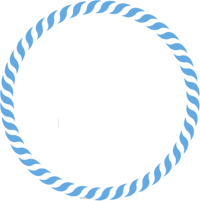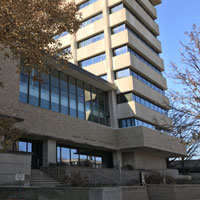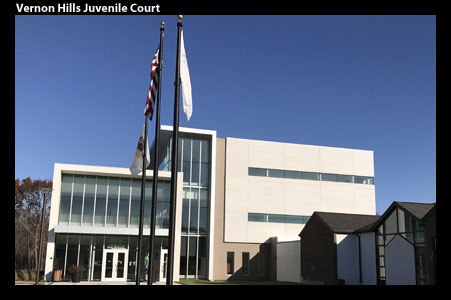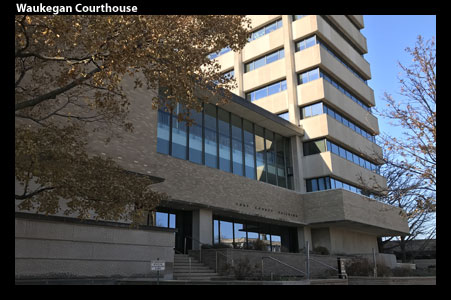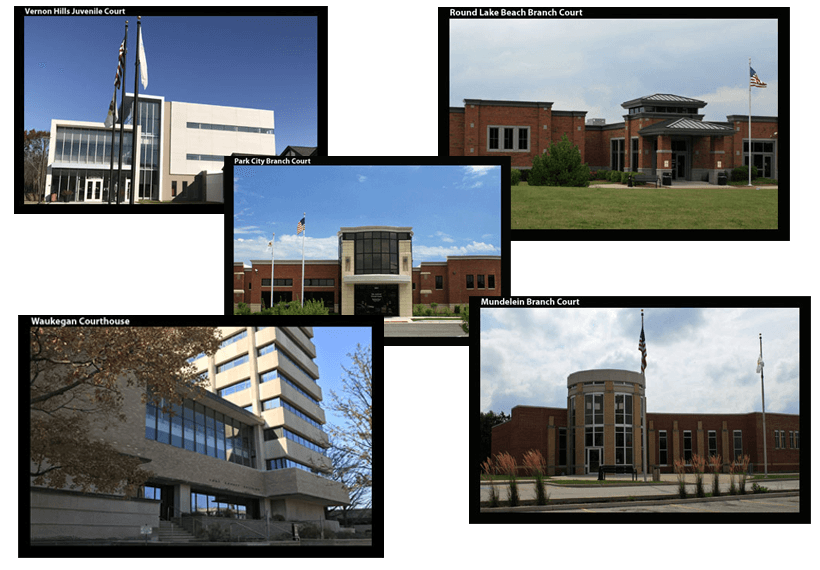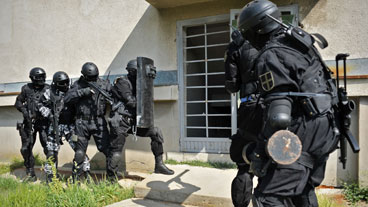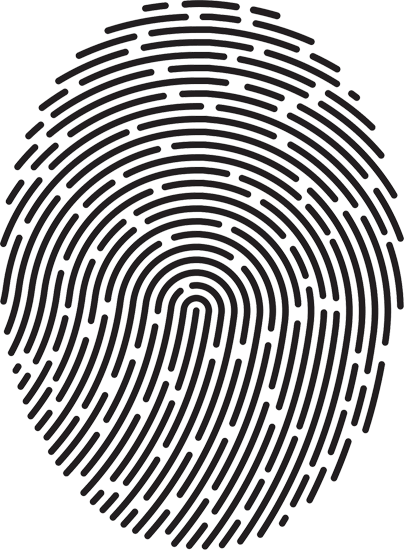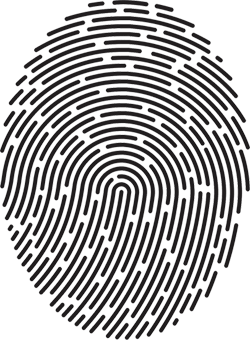Felony Drug Case Defense Attorney Lake County, Illinois
If you are charged with the unlawful possession or delivery of a controlled substance in Lake County criminal court, you are probably facing a felony offense. A Lake County felony drug case can come with a potential punishment of between one and many dozens of years in prison depending on the circumstances of the case. Generally, your Lake County drug case will be charged in one of three basic ways. In a first type of case, you may be charged with unlawful possession of a drug. In a second type of case, you might be charged with delivering or intending to deliver a drug. In a third type of case, you might be charged with a combination of both.
Drugs that commonly serve as the basis of Lake County felony controlled substances charges include cocaine, heroin, ecstasy or MDMA, peyote, mushrooms or psilocybin, LSD, opioids, hydrocodone, oxycodone, amphetamines, and prescription medication. In addition to these, there are many dozens of other drugs that fall under the regulation of the Illinois Controlled Substances Act, each of which can give rise to Lake County felony drug charges.
Defending Felony Drug Charges at the Waukegan Courthouse
Defending Felony Drug Charges at the Waukegan Courthouse
If you are the defendant in a Lake County felony drug case at the main Lake County criminal courthouse in downtown Waukegan, Illinois, the HoffmanLaw Office can help. Not only can we help, but we have the ability to make an enormous difference in the outcome of your case. We have vast experience with Lake County felony drug charges. We have handled some of the most extremely serious controlled substances charges that exist under Illinois law.
We are ready to talk with you to discuss your case. If chosen as your attorney, we will bring years of former prosecution experience in Lake County felony drug court to the defense of your case. We are ready to get to work, to start analyzing the issues your case presents, and to start building your defense.
 HoffmanLaw
HoffmanLaw HoffmanLaw
HoffmanLaw(847) 587-5000
 HoffmanLaw
HoffmanLawExperienced Attorney Defending Felony Drug Charges at the Waukegan Courthouse
Experienced Attorney Defending Felony Drug Charges at the Waukegan Courthouse
The punishment you can receive in your Lake County unlawful possession or delivery of a controlled substance case can be severe. Under the criminal laws of the State of Illinois, a “controlled substance” is a type of drug that is listed under the law in a written “schedule” as a drug or substance the possession, use or distribution of which is legally regulated and controlled. See, 720 ILCS 570/102(f). If you are charged in Lake County, Illinois criminal court with unlawfully possessing or delivering a controlled substance, you are accused of breaking the rules pertaining to a scheduled drug.
Almost all Lake County controlled substance charges are felonies. This means that, unless you have one of the very few controlled substance cases that is charged as a misdemeanor offense, your Lake County controlled substance case will be assigned to and resolved in felony court. A felony is a type of offense that carries a possible sentence of one year or more in prison. There are, in fact, a large number of controlled substances cases that actually mandate that you go to prison if you are found guilty as charged.
Illinois law lists hundreds of drugs as controlled substances. The lists of these specifically-named controlled substances can be found in the Illinois Controlled Substances Act. See, 720 ILCS 570/100 et al. Whatever type of drug forms the basis of the controlled substance case you are defending at the main Lake County criminal courthouse in downtown Waukegan, the HoffmanLaw Office has the experience and the ability to effectively defend your case.
Common Lake County Drug Cases We Defend

Cocaine
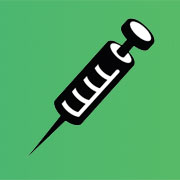
Heroin

Ecstasy / MDMA

LSD

Mushrooms

Methamphetamine

Oxycodone

Prescription Drugs
HoffmanLaw Defends Both Possession and Delivery Types of Lake County Drug Cases
HoffmanLaw Defends Both Possession and Delivery Types of Lake County Drug Cases
There are two basic types of Lake County criminal cases that deal with controlled substances charges. The HoffmanLaw Office defends both. There are POSSESSION cases and DELIVERY cases. In most Lake County delivery-type controlled substances cases, you also will be charged with a possession offense. This is because, if you are charged with a delivery type of offense, in order to prove that you delivered a drug, the prosecution will try to prove that you first possessed it.
For example, if your case is based on ONLY your alleged possession of a controlled substance, then you might be charged something like this:
COUNT 1 OF 1: The Defendant, in the County of Lake and State of Illinois, committed the offense of unlawful possession of controlled substance, in that the said defendant knowingly and unlawfully had in his or her possession less than 15 grams of a substance containing cocaine.
Alternatively, if your case is based on BOTH your alleged possession AND delivery of, or intent to deliver, a controlled substance, then you might be charged something like this:
COUNT 1 OF 2: (Exactly the same as Count 1 above).
COUNT 2 OF 2: The Defendant, in the County of Lake and State of Illinois, committed the offense of unlawful possession of controlled substance with intent to deliver, in that the said defendant knowingly possessed with intent to deliver 1 gram or more but less than 15 grams of a substance containing cocaine.
Delivery Charges Carry Greater Penalties than Possession Charges
Delivery Charges Carry Greater Penalties than Possession Charges
Drug charges alleging that you delivered a controlled substance, or that you possessed a controlled substance with the intent to deliver it, are more serious than charges that allege that you simply possessed the same quantity of the drug.
For instance, unlawful possession of less than 15 grams of cocaine is a class 4 felony offense, punishable by up to 3 years in prison. Unlawful possession with the intent to deliver 1 gram or more but less than 15 grams of cocaine is a class 1 felony offense, punishable by up to 15 years in prison.
In a more specific example, if you are found guilty of possessing 10 grams of cocaine, you could be sentenced to prison for up to 3 years. If, alternatively, you are found guilty of possessing that same 10 grams of cocaine, but also of having had the intention of delivering it, then you could be sentenced all the way up to 15 years in prison. As you can see, the potential penalties in controlled substances cases can drastically increase whenever delivery or an intent to deliver is added to what otherwise would be a simple possession-based offense.
FACT: Matt Hoffman spent roughly TWO YEARS working as a Prosecutor in the Felony Drug Division of the Lake County State's Attorney's Office in Downtown Waukegan
When You Need Experience, We are Here to Answer Your Call
When You Need Experience, We are Here to Answer Your Call
In defending you in your Lake County felony drug case, the HoffmanLaw Office will rely on almost twenty years of experience handling drug cases in Lake County criminal court. Our experience with drug cases is extremely deep. Lead Attorney Matt Hoffman of the HoffmanLaw Office spent approximately two years working as an Assistant State’s Attorney in the Felony Drug Division of the Lake County State’s Attorney’s Office before establishing the HoffmanLaw Office in 2005.
This means that, for roughly two full years, Matt reported almost every day to a Lake County felony courtroom, as the single felony drug case prosecutor working in that courtroom, and that he was responsible for all of the felony drug cases in that courtroom during that period of time. He handled a very serious and heavy caseload, which included all levels of Lake County felony drug cases, as well as some of the biggest and most publicly followed drug cases in the county.
The HoffmanLaw Office is ready to put this experience to work in the defense of your case at the main Lake County courthouse in Waukegan. Right now, we offer you a synopsis of some of attorney Matt Hoffman’s former duties and accomplishments as a prosecutor in the Felony Drug Division of the Lake County, Illinois State's Attorney's Office:
Our Former Prosecution Experience with Lake County Drug Cases
Our Former Prosecution Experience with Lake County Drug Cases
Independently managed felony drug prosecutions caseload for approximately two years.
Handled all aspects of pretrial procedure in serious drug cases under Illinois Controlled Substances Act.
Resolved class X and super X felonies, and cases involving codefendants, accountability and conspiracy.
Prosecuted trafficking of controlled substances across State lines.
Reviewed indictments, prepared disclosure to the accused, complied with ongoing felony discovery.
Participated in arraignment, bond reviews, pretrial conferences, and plea bargaining
Engaged in motion and hearing practice, including motions to quash arrest and suppress evidence.
Prosecuted many cases involving use of search warrants and court-approved overhears.
Worked with local tactical law enforcement agencies in investigation and preparation of drug cases for trial.
Handled through disposition one 1,000 pill MDMA case and one 5,000 pill MDMA case.
Obtained jury verdicts requested in multiple cases involving more than a kilo of cocaine.
At HoffmanLaw, We Don't Just SAY We Have Experience. We can PROVE it.
At HoffmanLaw, We Don't Just SAY We Have Experience. We can PROVE it.
Your HoffmanLaw Attorney: Bringing a Powerful Defense to Your Felony Drug Case
Your HoffmanLaw Attorney: Bringing a Powerful Defense to Your Felony Drug Case
At the HoffmanLaw Office, we understand that your Lake County felony drug case has the potential to lead to a felony conviction, to time on probation, and to time in jail or even prison. If you choose us as your attorney, we will take the defense of your Lake County felony drug case seriously.
We pay attention to details. We analyze the law and facts of your case. We look for problems with the "evidence" against you, constantly exploring for weaknesses we might be able to expose in the prosecution's case. When we defend you against a Lake County felony drug charge, we work to protect your freedom and your future. In doing so, we bring to bear almost twenty years of experience practicing criminal law in the Lake County courts.
 HoffmanLaw
HoffmanLaw(847) 587-5000
What is a Controlled Substance?
What is a Controlled Substance?
A Drug, Substance, Immediate Precursor or Synthetic Drug
Listed in the Schedules of Article II
Of the Illinois Controlled Substances Act
Why Choose HoffmanLaw to Defend Your Lake County Illinois Felony Drug Case?
Why Choose HoffmanLaw to Defend Your Lake County Illinois Felony Drug Case?

Analysis.
The HoffmanLaw Office always is focused on the presumption of innocence. Building on this presumption, the HoffmanLaw Office performs a systematic and searching ANALYSIS of the facts alleged in your case. This intensive analysis exposes weakness in the prosecution's evidence and develops powerful defense arguments and strategies.

Preparation.
The HoffmanLaw Office strives to know completely the facts and law of your case. In criminal court, good results do not often emerge by chance. They come through intense PREPARATION that lays the groundwork for success. When you select the HoffmanLaw Office as your legal advocate, you team yourself with a philosophy of extreme preparation.

Results.
The HoffmanLaw Office views every time it appears in court with you as an opportunity to achieve RESULTS. Whether it is negotiating during a pretrial conference, cross-examining a witness, or delivering a closing argument at trial, the HoffmanLaw Office strives to be your best advocate at all times.
 HoffmanLaw
HoffmanLawYour Attorney Must Understand the Core Issues in Your Drug Case
Your Attorney Must Understand the Core Issues in Your Drug Case
Whether you are charged with unlawful possession of cocaine, heroin, ecstasy, pills, hallucinogens, prescription medication, or with some other drug, there are a number of core issues that frequently come into play in the defense of Lake County felony drug cases. The HoffmanLaw Office understands these core issues.
Not only do we understand them, we actually look for them in the drug cases we defend. In fact, we have seen these arise issues again and again over the years during our work on felony drug cases in Lake County criminal court. We know how significantly these issues can affect the overall outcome of your case.
The Police Do Make Mistakes
The Police Do Make Mistakes
If the police did something wrong in getting to the evidence with which you now find yourself criminally charged, then your attorney should bring that information to light in the defense of your case in court. In felony drug cases, the overwhelming majority of the time the prosecution’s case is based on the conduct and observations of the police.
If the police violated one or more of your Constitutional rights in building a drug case against you, then your lawyer can bring those facts to the attention of the judge presiding over your case. Or, your lawyer can bring those facts to the prosecutor’s attention to push for a better overall outcome in your case. Sometimes a violation of your Constitutional rights— for instance, a violation of your protection against an unlawful search and seizure of evidence— can be so serious that it leads to a dismissal of your case.
Your Attorney is Responsible for Creating Success in Your Case
Your Attorney is Responsible for Creating Success in Your Case
The HoffmanLaw Office believes the attorney who takes on your defense against Lake County controlled substance criminal charges should be highly familiar with the laws and procedures that are going to apply to your case in court. The defense of felony drug cases often can become highly technical. Your defense attorney must know where to look, what to look for, and how to leverage problems with the prosecution’s case to your advantage.
This type of exercise requires a high attention to detail, a fierce commitment to truth, and a strong dedication to achieving defense goals. The potential penalties in Lake County felony drug court are just too serious to allow your attorney to act with anything less than total commitment to identifying, developing and implementing strategies that will benefit the defense. Success in felony drug court does not come by chance.
In our experience, no one unaffiliated with your side of your case is going to create success that benefits you. The judge is not going to create it. The prosecutor is not going to create it. Only you or your attorney are going to create your success— through thinking, through intelligence, through insight based on experience, and through hard work. Quite simply, in felony drug court, it really ultimately is your attorney's job to create any and all of the success you might experience. We know this. And this is why we want to work on your case.
If Your Felony Drug Case Involves a Search Warrant
If Your Felony Drug Case Involves a Search Warrant
Many Lake County drug cases involve the use of search warrants. In a typical search warrant case, you were arrested when the police executed a search warrant on your home or on a structure where you were present.
Under the Constitution of the United States, the police are not allowed to simply enter your home or business whenever they want and for whatever reason. In most cases, even when the police suspect criminal activity is occurring inside your home, unless an emergency or some other legal exception exists, the police are not permitted to just walk right into your residence and start searching for evidence and arresting people.
For the police to lawfully enter your residence, in many circumstances they are required to first appear in front of a judge and request a search warrant that would allow them to enter. At this meeting, the police are required to provide the judge “probable cause” that a crime has occurred or is going to occur within your home and that your home may contain evidence of the alleged criminal activity. Even when a court approves a search warrant, the warrant itself must describe the types of items the police are allowed to seize. In this way, the search warrant itself limits the scope of the evidence the police are allowed to search for and seize.
We are Ready to Attack the Search Warrant in Your Case
We are Ready to Attack the Search Warrant in Your Case
The HoffmanLaw Office knows Lake County search warrant drug cases. We know them very well. Once, we defended a client in Lake County felony drug court whose home the police entered on the authority of a court approved search warrant. The police seized evidence in our client's home. This evidence led to our client's arrest on felony drug charges. Because the search and seizure of evidence, and the ultimate arrest of our client, were based entirely on police action that was originally authorized by a search warrant that had been reviewed and approved by a judge, it only made sense to us to start our defense of this case by closely examining the search warrant itself.
The more we scrutinized the search warrant, and the facts the police gave to the judge when they made their search warrant request, the more it became clear to us that the police violated our client's Constitutional rights in gathering the facts that led to the issuance of the warrant itself. So we contested the search warrant in a written pretrial "Motion to Quash Arrest and Suppress Evidence" to the prosecution. The issues we raised in our motion led to the dismissal of all charges and to the prosecution dropping the entire case.
This episode highlights exactly the type of work we try to do in the HoffmanLaw Office. When we take on your felony Lake County drug case, our analysis of your case starts from the ground up. In your defense, we are going to start looking into your entire case, searching for problems with the prosecution's evidence or corners that should not have been cut by the police. If we do find problems with the State's case, we will highlight and work to leverage them to your advantage.
Suppressing Drug Evidence in Cases Involving Illegal Traffic Stops
Suppressing Drug Evidence in Cases Involving Illegal Traffic Stops
Another common situation where people get arrested on felony drug charges concerns traffic stops. You may have been driving on a public roadway, when a police officer pulled you over. The officer probably claimed that he or she witnessed you commit one or more traffic violations before making the decision to stop your car. At some point after you stopped, and after the police first made contact with you by speaking with you while you sat in the driver’s seat and they remained outside your car, the police decided to search you and to search the interior of your vehicle.
There are many laws that apply to traffic stops in drug cases. There are many laws that apply to police searches of the inside of vehicles. Just as the police cannot go in and search the interior of your home for any reason and in any circumstance, so, too, they are prohibited from searching the inside of your car unless specific legal and factual bases for that search apply.
Your attorney defending you against felony drug charges that arose out of a traffic stop must know the issues that apply to this kind of case. The events surrounding how the police actually got into your car can be highly important to issues that we can raise in your defense.
Just because the police allegedly found drugs in your car, or on your person during a traffic stop, does not mean that their seizure of the evidence now being used to prosecute you was legal and permissible under the law. A motion to quash arrest and suppress evidence can be filed in this type of case as well. If your motion is brought to hearing, we would make an argument to the judge, before any trial is held on the actual charges, that the police violated your rights in getting to the drugs they claim they found.
In this situation, if we can convince the court that the police violated your rights in this manner, then the court would enter an order prohibiting the prosecution from using the evidence the police found as a result of this violation at trial. In many cases, when such a ruling occurs, the prosecution’s case against you falls apart. If the prosecution cannot use its evidence, namely, the drugs the police claim they found, then they really find themselves in a position where they cannot prove their case.
Challenging the Chemical Composition of the Drugs in Your Case
Challenging the Chemical Composition of the Drugs in Your Case
Another basic issue that can arise in your felony drug case is whether the prosecution can prove that the substance the police seized is actually what they claim it is. Like the other elements of the offense in a controlled substance case, the prosecution must be able to prove beyond a reasonable doubt that the substance with which you are charged is, indeed, the same drug that is identified in the written charge against you.
The way the prosecution attempts to prove the substance the police seized is what they claim is by testing the substance at a crime lab. The defense also has the ability to have the substance tested by its own expert in drug analysis and identification, and to challenge any findings made by the prosecution's chemist.
In this regard, the HoffmanLaw Office actually defended a client in Lake County criminal court who was charged in a very serious class X felony drug case. In this case, our client was charged with unlawful possession with the intent to deliver a large amount of pills. The penalty on conviction would have required that our client spend a lengthy term in prison.
In defending our client, we wrote and filed with the court a highly detailed “Motion to Quash Arrest and Suppress Evidence,” targeting what we believed to have been unlawful police conduct in their search of a vehicle in which our client was a passenger.
Yet our work in this case did not stop there. We continued to examine all relevant facts and to search for new and creative defenses. So we began to take a closer look at the drugs that actually were seized. In fact, we started to look at them very closely. As a result, we challenged their very nature. We questioned whether the substance the police seized, and with which our client was criminally charged, was actually even what the prosecution claimed it to be.
The results of our inquiry were astonishing. We learned that chemical testing of the drug in question revealed that it was an entirely different type of substance than that with which our client was charged. Not only was it different, but it was far less serious. Upon this discovery, the charges against our client were promptly greatly reduced. Our client was released from jail and avoided a mandatory sentence that would have sent him to prison for many years.
Contesting Your Mental State in Defense of Your Drug Case
Contesting Your Mental State in Defense of Your Drug Case
Yet another area that is highly worthy of defense investigation in your Lake County felony drug case is your alleged mental state. In a simple possession case, the prosecution has to both allege and prove that you possessed the controlled substance in question “knowingly.” But what if you did not “knowingly” possess anything? What if the police seized drugs, the drugs are what they claim they are, but the prosecution cannot prove beyond a reasonable doubt that you knowingly possessed them?
If the prosecution cannot prove beyond a reasonable doubt that you knowingly possessed the drugs, then they should fail to prove their case.
How about a different type of case, like one where you are charged with possession of a controlled substance with the intent to deliver it to another person? What then? What if, in that type of a case, the prosecution can somehow prove beyond a reasonable doubt that you knowingly possessed the drugs? Then, arguably, you could be found responsible for the lesser offense of unlawful possession of a controlled substance. Yet in this same type of case, the prosecution must be able to prove that you had the intent to deliver the substance. Intent is a highly specific mental state. If the prosecution cannot prove your intent beyond a reasonable doubt, then the prosecution should fail to prove the much more serious charge of unlawful possession with the intent to deliver a drug.
Some of these issues may seem highly technical— and they are. Yet, as a result of our many years of experience in Lake County felony court, we know that examining these technical issues, and developing them in your defense, can have hugely beneficial impacts on the overall outcome of your case. This type of technical analysis of your charges and the evidence can make the difference between you spending years in prison and you never spending a single day in jail.
As your attorney in your Lake County felony drug case, we will make no assumptions about the strength of the prosecution’s evidence against you. We will analyze and question that evidence and continue to do so up until the very moment we resolve your case.
That is the kind of work we do in our felony drug cases in Lake County criminal court. We are thorough. We are dedicated. We are experienced. We are prepared. And we are ready to fight.
 HoffmanLaw
HoffmanLawDefending All Felony Drug Charges at the Lake County Criminal Courthouse in Waukegan
We are Here to Help
(847) 587-5000
If it Seems Like You're Presumed Guilty...
Consider, if you will, this scenario. You were arrested. You were handcuffed. The police forced you into the back of a squad car. The police drove you to a police station. There, they held you in captivity. They booked you and processed you. They created an arrest record in your case. After the police finished booking and processing you, they ordered you into a jail cell. They kept you in that cell a long, long time.
Then, maybe the police interrogated you, asking you questions about a crime. You may have answered their questions. You may have written out a statement. Or, you might have exercised your right to remain silent. You might have refused to speak, refused to write, anything at all.
During this entire experience, you knew you were in custody on serious felony drug charges.
At some point, the police shuttled you to the jail in downtown Waukegan. There, you were held in custody, waiting to be brought up in front of the felony bond court judge.
Your case was called. Wearing a jail uniform, you stepped up in front of the bond court judge. The prosecutor told the judge the State's version of the facts in your case. You were told to say nothing. So you kept your mouth shut. The court learned about any prior arrest record you had and carefully studied the new charges against you.
Then, the judge set bond in your case. The court either released you on your signature with your promise to come back for future court dates, or the court sent you back into the jail with the requirement that you post bond to secure your release.
Whether you were released or held in custody, the charges against you remained— felony accusations with the potential of felony convictions and prison time.
Up until this point, no one with any real interest in your future has heard anything about your side of the case, your version of the facts. Up until this point, it is entirely possible that no one has been your advocate. To any degree. And in any way. You are alone. You are being prosecuted. And it seems you are being prosecuted to the fullest extent of the law.
 HoffmanLaw Knows Otherwise.
HoffmanLaw Knows Otherwise.Through this part of your story, who has been your advocate? Who has fought on your side of your case? Who was able to guide or counsel you, while the police ransacked your home, or tore apart your vehicle, or burrowed through your pockets?
Likely, the answer is no one. Likely, the answer is that you have had no advocate until this point in the story of your criminal case. You have had no one there fighting to protect you, no one there laboring to defend you, and no one there standing up for your rights.
We are here. The HoffmanLaw Office is here for you now. We are ready to pick up the responsibility of your defense. We are ready to meet the challenges of defending you against your Lake County felony drug charges. We are ready to bring to bear almost twenty years of dealing with serious criminal cases, just like yours, in Lake County criminal court.
More than anything, we are ready to get to work to start changing the story of your case. We are ready to push back against the enormous efforts of the police and prosecution. We are ready to bring the powerful voice of the defense online. We are ready to start applying our legal talents, our experience, and our abilities to author a real positive impact on the outcome of your case.
Under our adversarial system of justice, it takes two sides to write the story of your criminal case— the prosecution, AND the defense.
This is where the HoffmanLaw Office can start to take action. We work for you. We work for the defense.
If we become your attorney in your Lake County felony drug case, we will start to look at what really happened, not just at what the police claimed occurred. Always, we will look at your case through the lens of the presumption of innocence. No matter what the evidence against you, no matter even if it seems enormous and insurmountable, we will always view you as presumed innocent under the law.

Defending Juveniles Against Felony Drug Charges at Juvenile Court in Vernon Hills
Defending Juveniles Against Felony Drug Charges at Juvenile Court in Vernon Hills
The HoffmanLaw Office also defends felony drug charges at the Lake County, Illinois juvenile courthouse in Vernon Hills.  Juvenile court prosecutions are governed by penalties, rules and procedures that often differ greatly from those that apply in adult court, including those discussed on this page.
Juvenile court prosecutions are governed by penalties, rules and procedures that often differ greatly from those that apply in adult court, including those discussed on this page.
Attorney Matt Hoffman of the HoffmanLaw Office has many years' experience with Lake County juvenile delinquency proceedings and "Petitions for Adjudication of Wardship." He is a former Lake County Assistant State's Attorney who used to prosecute juvenile cases in Lake County juvenile court. If your child is charged with unlawful possession or delivery of a controlled substance, or other offenses under the Illinois Controlled Substances Act in Lake County juvenile court, the HoffmanLaw Office has the specific experience necessary to work toward an intelligent and effective resolution of the case.
Matt Hoffman is a former recipient of the Lake County, Illinois Juvenile Justice Award.




